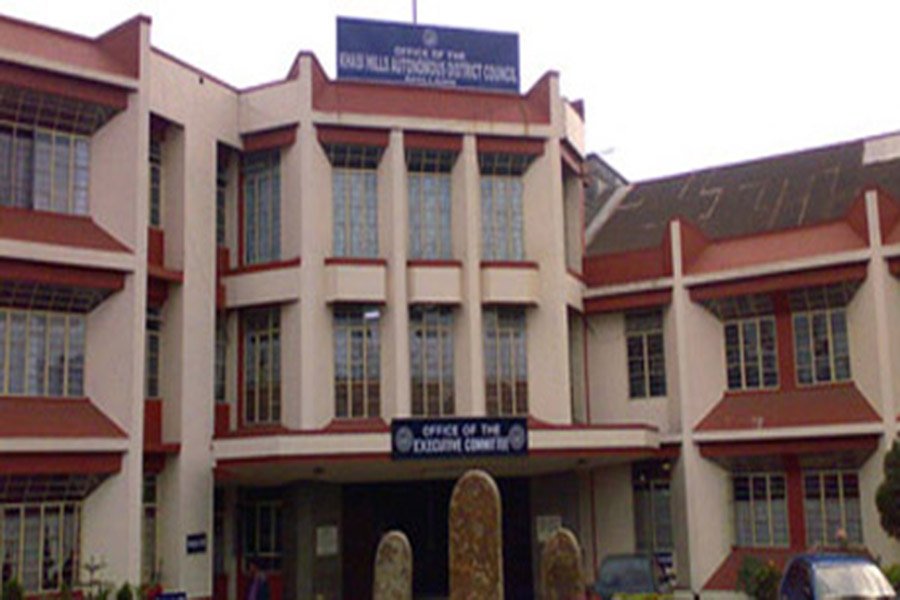Subtotal $0.00
Shillong, Oct 26: The Khasi Hills Autonomous District Council (KHADC) on Friday unanimously passed the KHAD (Inner Line as adapted from the Eastern Frontier Regulation, 1873) Regulation Bill, 2018 which will regulate the entry of people from outside in areas under the jurisdiction of the Council.
Before passing the Bill, KHADC chief executive member, Hispreaching Son Shylla expressed his thankfulness to the members of the House for supporting the move of the Council to implement the Inner Line Permit (ILP).
Stating that due procedure has been followed, Shylla said that the Bengal Eastern Frontier Regulation (BEFR), 1873 is one of the regulations included in the United Khasi-Jaiñtia Hills District (Application of Laws) Regulation, 1952 which is in force in the KHADC.
He recalled that the United Khasi-Jaiñtia Hills District (Application of Laws) Regulation, 1952 was challenged by one B. Kurkalang, who was arrested under the Excise Act, 1910, which is one of the Central laws included in the Regulation, 1952.
According to him, Kurkalang in her petition had maintained that the Central laws included by the then Governor under United Khasi-Jaiñtia Hills District (Application of Laws) Regulation, 1952 are no longer application upon the establishments of the Autonomous District Councils.
He however informed that the Supreme Court in its ruling on the matter had clearly stated that these Central laws will stand until and unless they are repealed, and the laws under the Regulations, 1952 remains till date.
“Therefore, if any attempt to stop us from implementing the BEFR, 1873, it may be a contempt of the Supreme Court’s ruling,†Shylla said.
Earlier, Chief Minister Conrad K Sangma that ILP is a subject not within the jurisdiction of the KHADC as it is a legislation which will have to go to the government of India.
On this, Shylla disagreed with the CM, and said, “He (CM) may be right to some extend because this additional power we are getting through the Regulation, 1952 is something which is not known to everybody.â€
Citing that the KHADC is adopting the EFBR, 1873 like it did in the case of the Indian Christian Marriage Act, 1872, he said, “There is no need for us to seek the approval of the government of India.â€
According to him, the decision to pass the Bill was also based on the direction of the state government to take necessary action on a memorandum submitted by the HYC last year.
Informing that the Bill will soon be submitted to the Governor for his assent, Shylla further said that he would also soon meet the chief minister to apprise him that there is way for the district council to implement the ILP.
“I will be meeting the CM to apprise him on the matter because I think there is some communication gap between him and the officials,†he said.
Stating that ILP is the need of the hour, Shylla said that a strong and effective law like the ILP is needed especially in view of the implementation of the NRC in Assam.
“Further, the ILP will no doubt bring peace to the state as it will take out the fear of being outnumbered from the hearts of the people,†he said.
Asked, the KHADC chief said that the Council if necessary will conduct a study Meghalaya Residents Safety and Security Act (MRSSA) passed by the state government in 2016 to find out whether it is more effective than the ILP to tackle issue of influx and illegal immigration.
“We will study in-depth the effectiveness of the MRSSA. If the state Act is more effective we have no objection as our main concern is to ensure security of our people,†he said.
Meanwhile, the “Inner Line†Bill seeks to prohibit all citizens of India or any class of such citizens from going beyond such line without a pass under the hand and seal of the chief executive member or officer he may authorize to grant such pass.
“Any person so prohibited who after the Inner Line has been prescribed and notified in accordance with Section 2 of this Regulation, goes beyond such line without a pass, shall be liable, on conviction before a magistrate or Court, to imprisonment of either description which may extend to one year or to a fine not exceeding one thousand rupees or both,†it stated.





